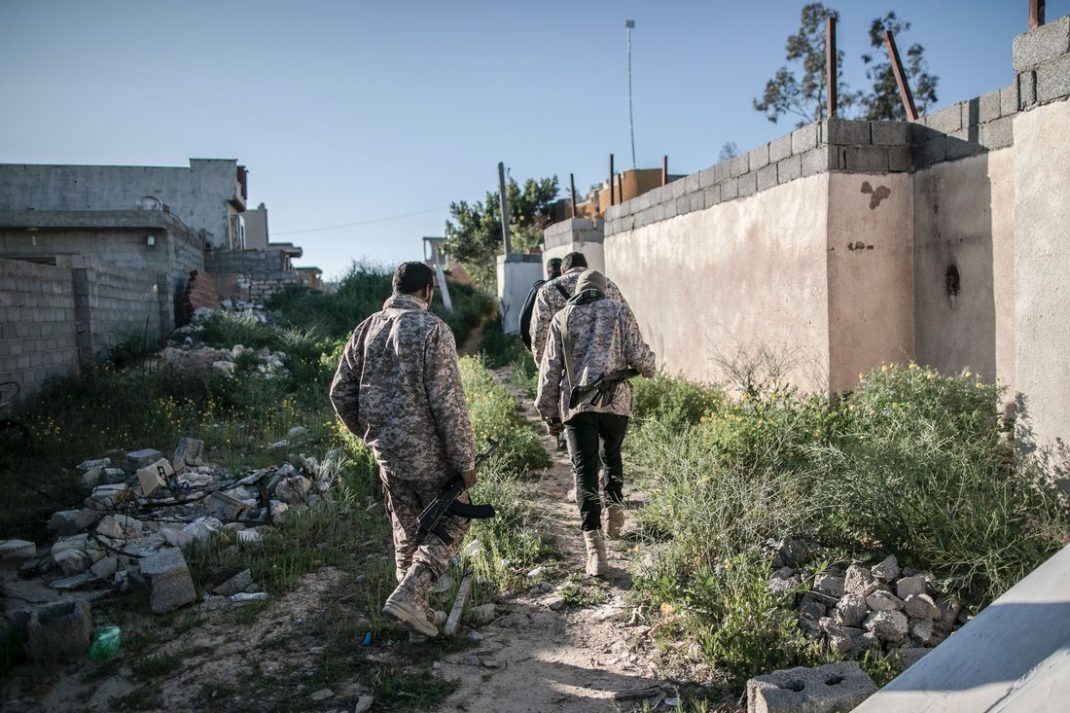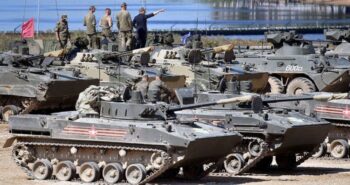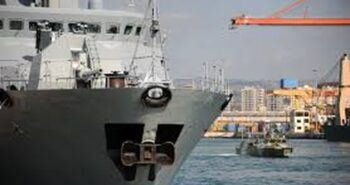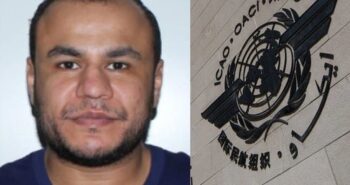Community Dynamics and Economic Interests
By Tim Eaton, Abdul Rahman Alageli, Emadeddin Badi, Mohamed Eljarh, and Valerie Stocker
 This paper is based on approximately 200 interviews carried out by the authors – in person and remotely – with a wide range of Libyan actors between November 2018 and September 2019. This the paper does not claim to cover all armed groups in the country.
This paper is based on approximately 200 interviews carried out by the authors – in person and remotely – with a wide range of Libyan actors between November 2018 and September 2019. This the paper does not claim to cover all armed groups in the country.
PART SEVEN
Community relations .. cont.
The LAAF’s increasing dominance leaves communities in the east unable to hold it accountable in any meaningful sense, despite nominal oversight by civilian authorities.
In April 2015, the House of Representatives summoned Haftar for a hearing on military and security developments. Haftar did not show up, his excuse being a lack of time due to ongoing military operations in Benghazi and Derna.
At the same time, there have been instances when public pressure on the LAAF, its leadership or security forces aligned with it has been effective. In February 2017, Nadhouri, at that time still military governor of the eastern region, issued a directive banning women from travelling without a guardian and security clearance.
The decision, ostensibly made on national security grounds, immediately prompted protests by activists and civil society organizations.
Female leaders from Benghazi met with Nadhouri to convince him that the decision was discriminatory, prompting him to suspend the directive for few days – albeit, only until he came up with a new one that banned both women and men from travelling without security clearance from the relevant authorities.
Since the LAAF’s consolidation of control in Benghazi and Derna, the role of independent civil society has remained weak. Interviews with some residents of Benghazi have indicated that the legitimacy accorded by some members of the community to the LAAF has made it more difficult for civil society to hold the group accountable.
The limited presence in the eastern region of international NGOs, the UN Support Mission in Libya (UNSMIL) and affiliated UN agencies is also likely to have contributed to the diminishing power of civil society.
Indeed, only civil groups specifically linked to the LAAF enjoy relative freedom, access to funding and influence. When Abir Emneina, the head of the independent Civil Society Commission in Benghazi, challenged the increased surveillance and oversight by the LAAF and security services of civil society groups in Benghazi, she was removed from her post and replaced with someone considered more pliant.
The limited presence in the eastern region of international NGOs, the UN Support Mission in Libya (UNSMIL) and affiliated UN agencies is also likely to have contributed to the diminishing power of civil society.
From 2017, the internal and external security agencies in eastern Libya resumed their activities.
They started to conduct surveillance of civil society. They also placed restrictions on civil society groups, such as requiring security clearance for foreign travel.
The security agencies also instituted various administrative measures: for example, producing files on the details of activists, the names of employees and contacts, and financial and bank account data.
On some occasions, activists were banned from travelling or had their passports confiscated when applying for security clearance to travel abroad.
Female activists have sometimes been harassed at airports when travelling without a chaperone. Since the launch of the Tripoli offensive in 2019, the space for opposition has been further reduced.
Revenue generation and resource mobilization
The ability to fund the LAAF’s operations has ensured the sustainability of Field Marshal Haftar’s efforts to establish security and a military governing authority across territories under LAAF control.
The LAAF accesses a significant amount of its financial resources from (or via) rival state institutions in both the east and west of the country. By 2016, the LAAF’s revenue generation from these sources had become significantly more robust and sustainable, and was established to some degree within a legal framework.
Achieving the latter was part of a strategy to protect the LAAF and its leadership from any future legal implications arising from its revenue-generating activities. LAAF revenue-generation mechanisms and modalities have gradually evolved, going through three broad phases.
In the first phase (2014–15), the LAAF depended on local support and donations from businessmen.
The second phase (2016–19) saw the enactment of legislation operationalizing the support of civilian authorities and establishing private sector interests.
The third phase (2019 onwards), still apparently in progress at the time of writing, involves seeking overt control over civilian authorities to consolidate the LAAF’s instruments for directing the economy, on the basis that this is required for the war effort in Tripoli.
In addition, various forms of external support have become increasingly important for the LAAF to prosecute its war effort and maintain its finances.
In the early phases of the LAAF’s development, Haftar’s forces relied heavily on support from local tribes, which ran convoys carrying food supplies.
Additionally, businessmen in Libya’s eastern region supported the LAAF with cash, or provided supplies such as water or military clothing, to help sustain Operation Dignity. Haftar reciprocated these efforts by providing political support for key power brokers, such as Ali al-Qatrani – who would later be nominated by Haftar to the Presidency Council of the GNA, headed by Prime Minister Fayez al-Serraj – and General Mohamed al-Madani al-Fakhri – who would become head of the LAAF’s Military Authority for Investment and Public Works (MAIPW).
The development of quasi-legal means of allocating funds to the LAAF
While the LAAF is unaffiliated with the GNA and thus lacks formal access to state institutions in Tripoli, its alignment with the eastern-based elements of the House of Representatives – still theoretically the internationally recognized legislature, despite the expiry of its mandate, chronic divisions and a failure to follow due process – has provided means to pass legislation in support of LAAF military operations.
Key pieces of legislation have included the establishment of the post of general commander of the Libyan Army (which Haftar’s alliance refers to as the LAAF), to which Haftar was appointed in 2015, and the introduction of an anti-terrorism law in the same year.
This provided legal and political cover for various operations and activities. It gave Haftar more legitimacy, which he used to secure political and financial support from the Interim Government, the eastern CBL, and regional and international powers.
The introduction in 2016 of the military investment law (which was eventually adopted by the House of Representatives in November 2018) expanded the ability of the LAAF to generate revenue without legal challenges from other parts of the Interim Government, including the Ministry of Finance.
While the LAAF is unaffiliated with the GNA and thus lacks formal access to state institutions in Tripoli, its alignment with the eastern-based elements of the House of Representatives has provided means to pass legislation in support of LAAF military operations.
The creation of the Defence Committee by the Interim Government in al-Bayda in the first quarter of 2016 established a significant funding mechanism for the LAAF. The committee was formed as a result of an agreement between Haftar and the prime minister of the Interim Government, Abdullah al-Thinni.
It was headed by the LAAF’s chief of staff, Abdulrazaq al-Nadhouri, with the members also including the prime minister, the eastern CBL governor, the minister of finance and the head of the House of Representatives’ national security and defence committee.
The sole purpose of the new Defence Committee was to secure and allocate funds for the LAAF and its activities. In 2016–17, the committee obtained more than LYD2 billion for the LAAF.
Through the Ministry of Finance, the Interim Government in al-Bayda has provided limited budget and funding for the Defence Committee. Via these means, the Interim Government secured LYD666 million for the LAAF through legal allocations by the Council of Ministers in 2018.
The Interim Government taxes fuel and petroleum products sold by the Brega Petroleum Marketing Company (BPMC) – a subsidiary of the National Oil Corporation (NOC) – in eastern Libya.
The taxes are then paid into the Ministry of Finance’s account with the eastern CBL in al-Bayda. As the BPMC is obliged by the eastern CBL to pay the taxes in cash, this provides significant liquidity to be channelled to the LAAF to pay foreign contacts and suppliers.
Other sources of revenue for the Defence Committee have included the telecoms sector, which in 2018 provided around LYD600 million through the accounts of the Libyan Telecommunication and Technology Company (LTT) in eastern Libya.
The eastern CBL has provided significant funds to the LAAF. In a 2019 interview, the head of the eastern CBL, Ali al-Hibri, noted that around a third of the eastern CBL’s spending had gone to the LAAF in 2016–18 (such spending accounted for 43% of the budget in 2016, 27% in 2017 and 20% in 2018).
All told, this amounted to approximately LYD9.5 billion over three years. These funds have been raised through a combination of loans from local commercial banks and the sale of government bonds, in addition to the printing of banknotes.
In a March 2019 interview, Hibri asserted that LYD29 billion in bonds and loans had been sold by the Interim Government at an interest rate of 3% per annum. For example, in 2017 the Defence Committee was able to secure a LYD1.1 billion loan from the Commercial National Bank and a LYD500 million loan from the Commerce and Development Bank. Al-Wahda Bank is also believed to be a source of loans for the LAAF.
These banks have in common the fact that their headquarters are in eastern Libya. Since 2016, the eastern CBL’s finances have also been significantly aided by the printing of approximately LYD14.5 billion in banknotes by Russian company Goznak.
The LAAF combines these sources of revenue with payments from the Tripoli-based authorities to pay salaries. Members of the LAAF who registered prior to 2014 are being paid through CBL Tripoli’s payroll via the LAAF’s own military accounts department in the east.
The department also finances LAAF members who joined after 2014, using monies secured in eastern Libya.
***
About the Authors:
Tim Eaton is a senior research fellow with the MENA Programme at Chatham House, where he focuses on the political economy of the Libyan conflict. Tim previously worked for BBC Media Action, the BBC’s international development charity, on projects in Iraq, Egypt, Tunisia and Libya, and helped to set up and manage its Libya bureau from 2013 to 2014.
Abdul Rahman Alageli is an associate fellow with the Middle East and North Africa Programme, based in Tripoli, Libya. He is currently an adviser to the GNA Chief-of-General Staff of the Libyan Army. Abdul Rahman previously worked with the stabilization team of the Libyan Prime Minister’s Office in 2011 before becoming the national security file coordinator in the Office of the Libyan Prime Minister and a member of the Libyan government’s National Security Coordination Team until 2015.
Emadeddin Badi is a researcher and political analyst who focuses on governance, conflict and the political economy of Libya. He has worked with multiple international development organizations and business risk firms as a consultant, and his analysis has been published widely.
Mohamed Eljarh is a Libyan affairs specialist who has covered Libya’s developments since 2011. He is the co-founder and CEO of Libya Outlook, and he acts as the regional manager for CRCM North Africa in Libya. Previously, Eljarh worked with the Atlantic Council and Foreign Policy magazine.
Valerie Stocker is a researcher who has studied Libyan politics and society extensively, mostly focusing on the southern region. She has worked with various development organizations since 2013, conducting fieldwork and analysis on conflict dynamics, peace processes, migration and other subjects. Valerie was based in Tripoli for several years starting in 2008, and has previously worked as a freelance journalist and business risk consultant.
_______________





